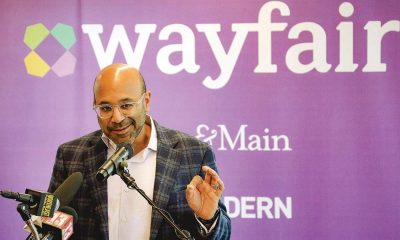Election News
As 2024 Election Nears US Allies Preparing for Trump 2.0
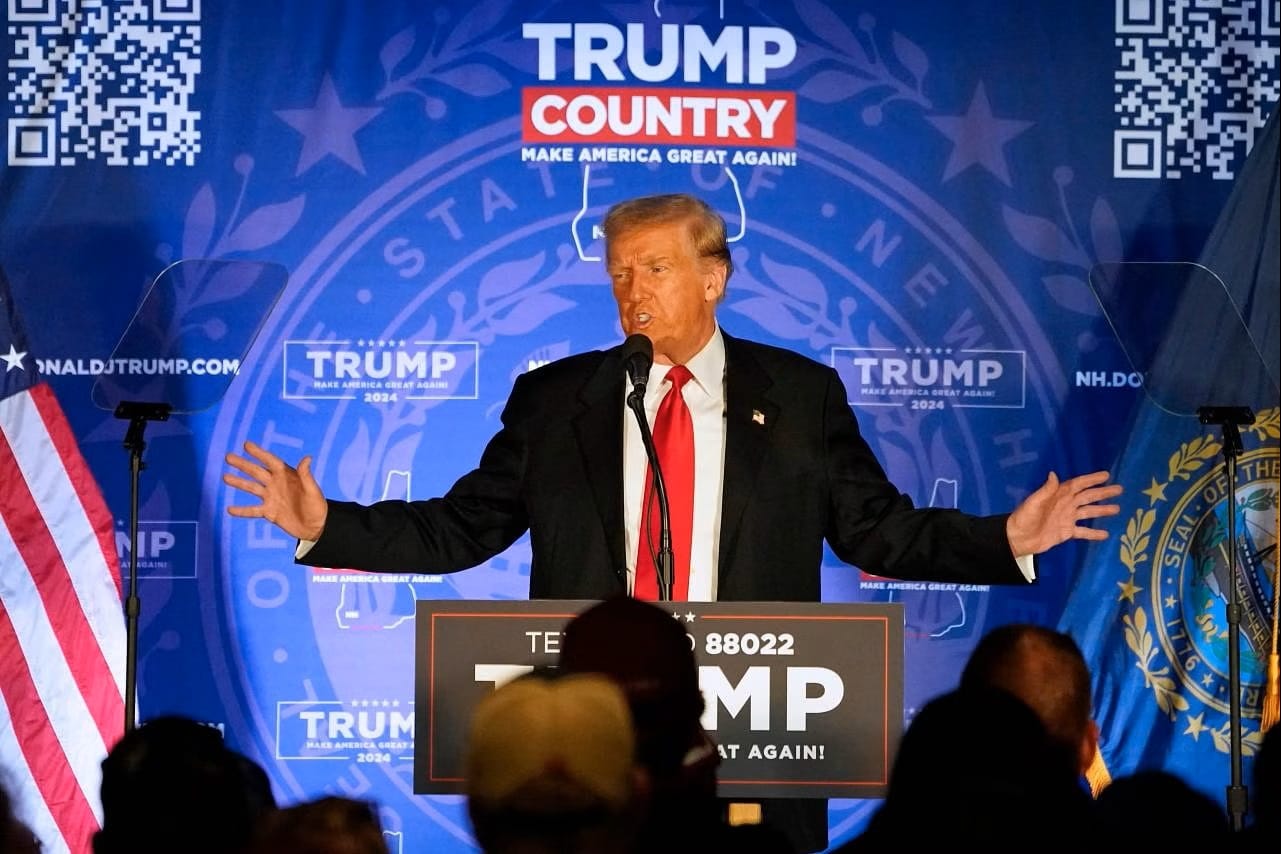
“Trump 2.0” refers to former President Donald Trump’s anticipated second presidential term in 2024. After serving a single term from 2017 until 2021. Trump is on track to win the 2024 election and become a two-term president.
His followers are rallying around the “Trump 2-0” slogan, seeing it as an opportunity to further his “America First” agenda.
Now, America’s friends are bracing for a Trump 2.0 presidency, while incumbent President Biden’s popularity is plummeting in polls. Since his first presidential campaign in 2015, Donald Trump has held the highest national advantage in a New York Times poll.
Now Germany is undertaking a charm drive within the Republican party. Japan is preparing its own Trump whisperer. Mexican government officials are speaking with Camp Trump. Australia is also enacting legislation to help Trump-proof its defense ties with the United States.
Everywhere, US allies are taking efforts to defend or enhance their interests in the event that former President Donald Trump retakes power in the November elections, which has a 50-50 probability based on recent opinion polls in battleground states.
They want to avoid the icy smack that Trump’s “America First” policies handed them last time, which included trade battles, a reshuffling of security alliances, an immigration crackdown, and withdrawal from a global climate agreement.
Reuters spoke with diplomats and government officials across five continents about Trump 2.0 preparations. It revealed Mexican discussions about a new, Trump-friendly foreign minister, an Australian envoy’s role in scrambling to protect a submarine sale, and a German official’s meetings with Republican state governors.
Some foreign leaders have called Trump directly, despite the risk of irritating his Democratic presidential challenger, Joe Biden. According to a source familiar with the exchange, Saudi Arabia’s crown prince just called Trump, and Hungary’s prime minister and Poland’s president have visited with him in person in recent weeks.
British Foreign Minister David Cameron also met with Trump last month at his Florida estate. After their private dinner, he informed reporters in Washington that they addressed Ukraine, the Israel-Gaza conflict, and NATO’s future.
White House Press Secretary Declines to Comment
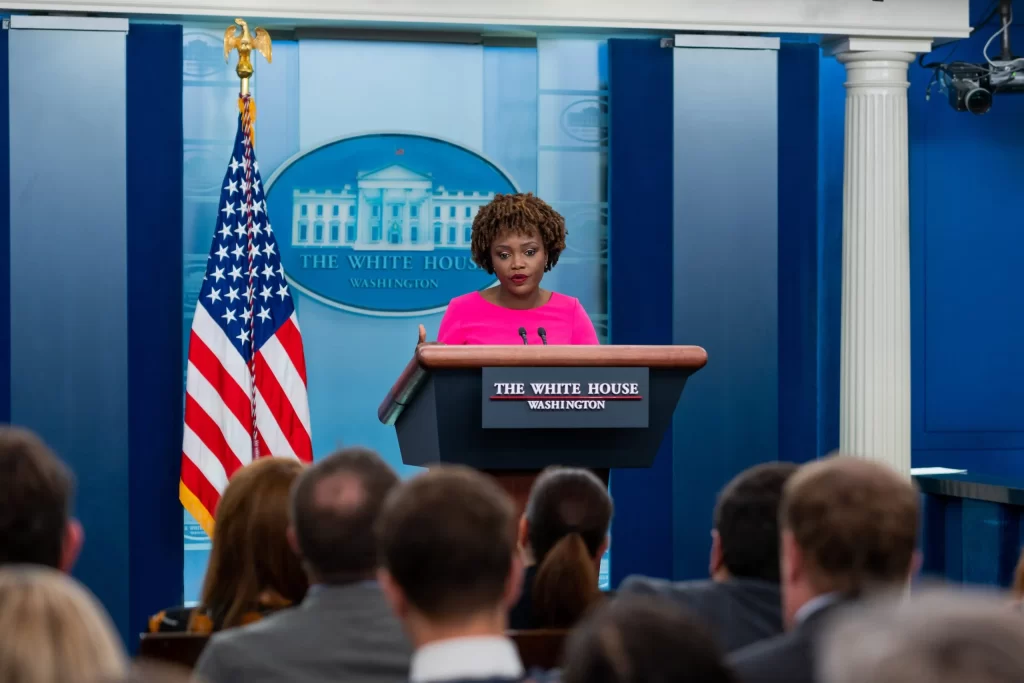
Press Briefing by Press Secretary Karine Jean-Pierre: Reuters Image
The White House directed Reuters to statements by spokesperson Karine Jean-Pierre, who claimed encounters like Cameron’s were not unusual. She declined to comment on Trump’s meeting with Orban or the Saudi conversation, which the New York Times first reported.
The Saudi government’s communications office and the Trump campaign did not reply to demands for comment regarding the call.
According to the campaign, he met with each European leader to discuss security matters, including Polish President Andrzej Duda’s suggestion that NATO nations spend at least 3% of their GDP on defense. Currently, they plan to spend 2%.
Jeremi Suri, a presidential historian at the University of Texas, said encounters between candidates and diplomats were common, but Trump’s meeting with Orban and phone contact with Saudi Arabia’s Mohammed Bin Salman were rare.
According to Trump aide Brian Hughes, international leaders’ meetings and calls show awareness of what we already know here at home.
Joe Biden is ineffective, and when President Trump takes office as the 47th President of the United States, the world will be more safe and America will prosper.”
The campaign did not comment in depth to inquiries regarding the other results in this piece, but campaign spokesperson Karoline Leavitt stated that “America’s allies are anxiously hoping that President Trump will be re-elected.”
Much of Trump’s contact has been less direct than meeting with the candidate.
Germany has been establishing connections with Trump’s Republican base at the state level, reminding party officials that the country invests considerably in American industry.
Germany Prepares for Trump 2.0

Germany Prepares for Trump 2.0: File Image
Germany is utilizing a transatlantic coordinator to prepare for Trump 2.0, keeping in mind that Trump promised harsh tariffs on Germany’s car industry while president and now intends to impose a minimum 10% tariff on all imports if reelected.
Michael Link, the coordinator, is leading what Berlin refers to as “bypass diplomacy,” which involves crisscrossing the union and targeting swing states in which Germany has a significant investment.
“It would be extremely important, if Donald Trump were re-elected, to prevent the punitive tariffs he is planning on goods from the EU,” he was quoted as saying.
He stated he had met with Republican governors from Oklahoma, Arkansas, Alabama, and Indiana. At each location, he stresses how strong trade relations support Germany’s position in the United States.
According to two Mexico-based sources, government officials have been meeting with people close to Trump on issues such as migration and the trafficking of fentanyl, a synthetic opioid, into the United States, both of which could result in increased US pressure on Mexico under another Trump administration.
Trump has stated that he would direct the Pentagon “to make appropriate use of special forces” to attack cartel leadership and infrastructure, which is unlikely to receive Mexican government approval.
The Mexican officials also talked on the North American free trade agreement, which was last revised under Trump’s presidency in 2020 and is up for review in 2026, according to sources. In recent public remarks, Trump complimented his revision of the contract.
And, in a sign of how important personal relationships are under Trump, Mexico’s ruling party is evaluating alternate candidates to install as the next foreign minister based on whether Trump or Biden appear to be the most likely winners, according to two sources familiar with the discussions.
Mexico to Hold Elections in Junes
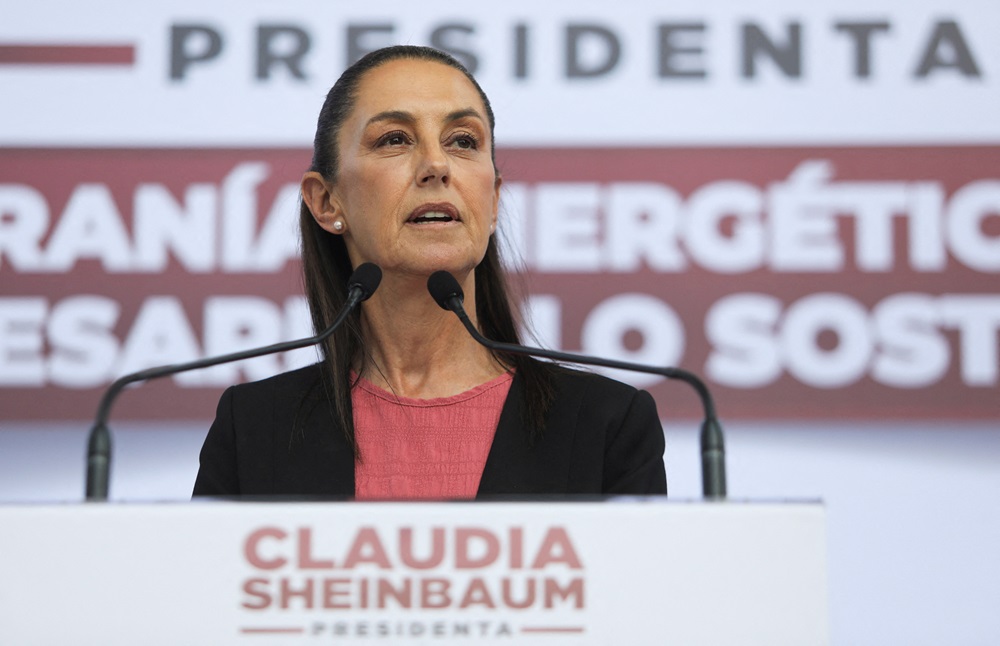
Presidential candidate of the ruling Morena party Claudia Sheinbaum: Image Reuters
Mexico has its own presidential election in June. If governing party candidate Claudia Sheinbaum wins, as expected, she will assume office in October, one month before the US election.
If Trump wins the election, she is likely to appoint Marcelo Ebrard as foreign minister, according to sources.
Ebrard served as Mexico’s foreign minister during Trump’s presidency and was widely regarded at home as having held his own in interactions with the administration.
If Biden wins, she is more likely to appoint political veteran Juan Ramon de La Fuente, according to the sources.
Sheinbaum’s campaign stated that she was not yet prepared to declare her choice. Ebrard’s spokeswoman stated that he was focusing on a Senate campaign while also supporting Sheinbaum’s presidential candidacy. De La Fuente did not return a request for comment.
To strengthen its diplomatic interaction with the Trump administration, Japan plans to send Sunao Takao, a Harvard-educated interpreter who helped former Prime Minister Shinzo Abe bond with Trump over golf games.
Taro Aso, another former prime minister of Japan, met Trump in New York on Tuesday, according to a campaign spokesman.
America’s closest friend in Asia is concerned that Trump may reignite trade protectionism and demand more money to maintain US soldiers in Japan, according to government officials.
UK Labour Party Favored to Win Next Election
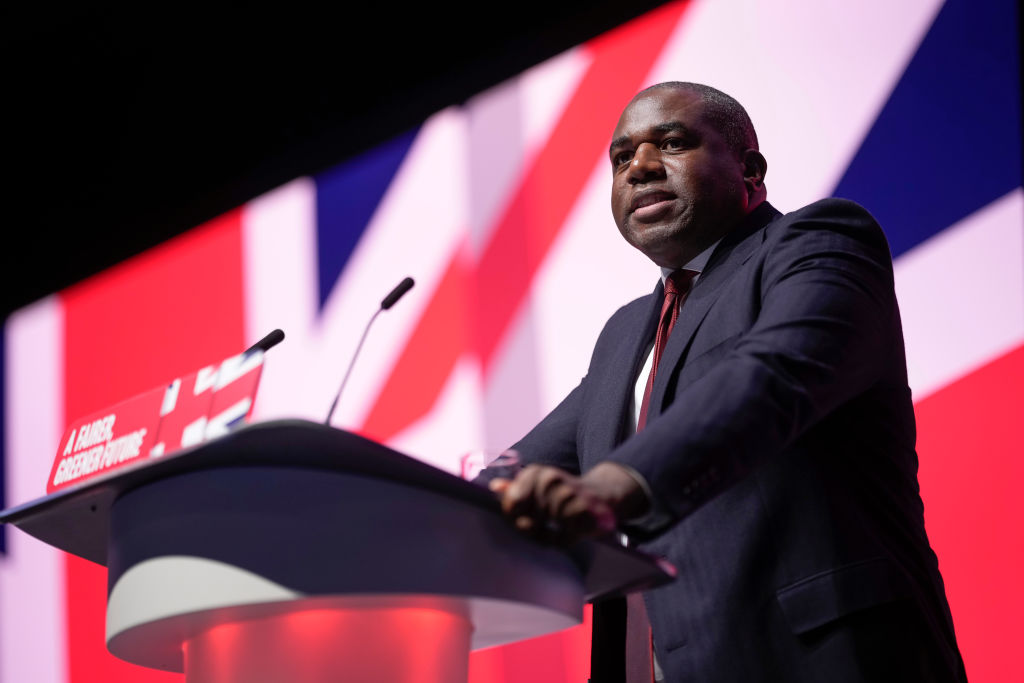
David Lammy Labour’s nominative foreign minister: Photo Getty Images
Britain’s Labour Party, which is now in opposition but is a strong favorite to win elections by the end of the year, may have a more difficult road to a positive relationship with a Trump presidency.
David Lammy, Labour’s nominative foreign minister, previously described Trump as a “woman-hating, neo-Nazi sociopath” in Time magazine. Lammy is now attempting to strengthen ties with Republicans, according to a Labour official.
Lammy has met with Republican leaders considered potential for positions in a Trump cabinet, including Mike Pompeo, Trump’s former Secretary of State, according to a Labour official.
Lammy declined an interview, but has stated that many British politicians have attacked Trump and that he will protect British interests as foreign minister regardless of who occupies the White House.
Victoria Coates, Trump’s former deputy national security advisor, warned a Labour victory may signal a rocky patch for US-UK relations if Trump wins, citing “personal vitriol” from Labour.
Australia Fears Trump Cancelling Defence Deal
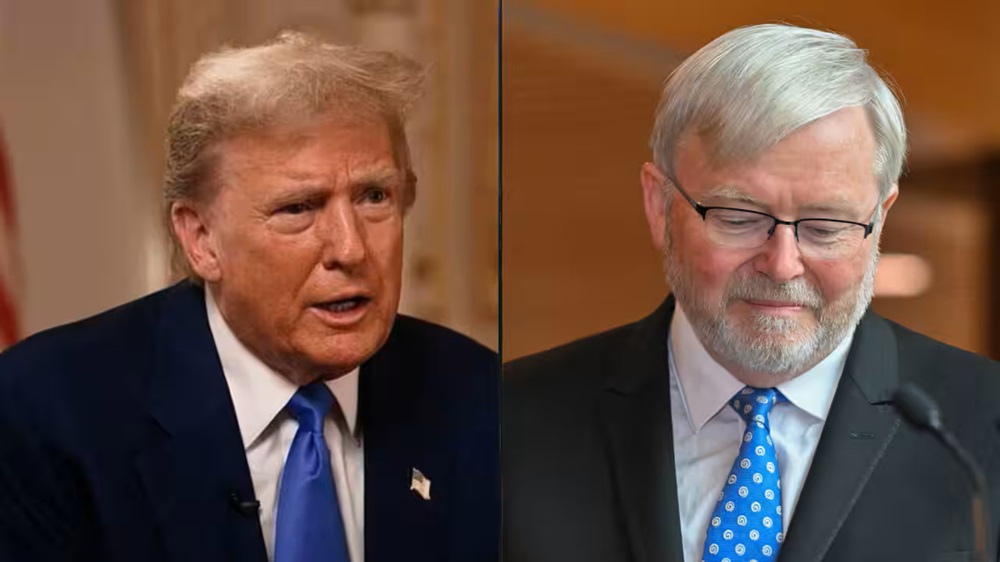
Australia’s Ambassador to the U.S. Kevin Rudd: File Image
Kevin Rudd, Australia’s U.S. ambassador, recently earned Trump’s ire for previous criticism of the former president.
In a TV interview last month, Trump stated that he had heard Rudd, an ex-prime minister, was “a little bit nasty” and that “if he’s at all hostile, he will not be there long.”
Australian Foreign Minister Penny Wong has supported Rudd, saying he would continue to serve as ambassador if Trump regained power. Behind the scenes, Rudd is attempting to prevent Trump from canceling a vital defense deal, according to an Australian diplomatic source.
The Biden administration has agreed to assist Australia in its first step toward creating a fleet of nuclear-powered submarines by selling three to five Virginia-class attack submarines.
Rudd has urged Canberra to move quickly to implement legislation that brings it closer to US arms-control standards and establishes a separate nuclear-safety council, in the expectation that it will make the sale more difficult for Trump to reverse, according to the source.
Trump’s “America First” Approach
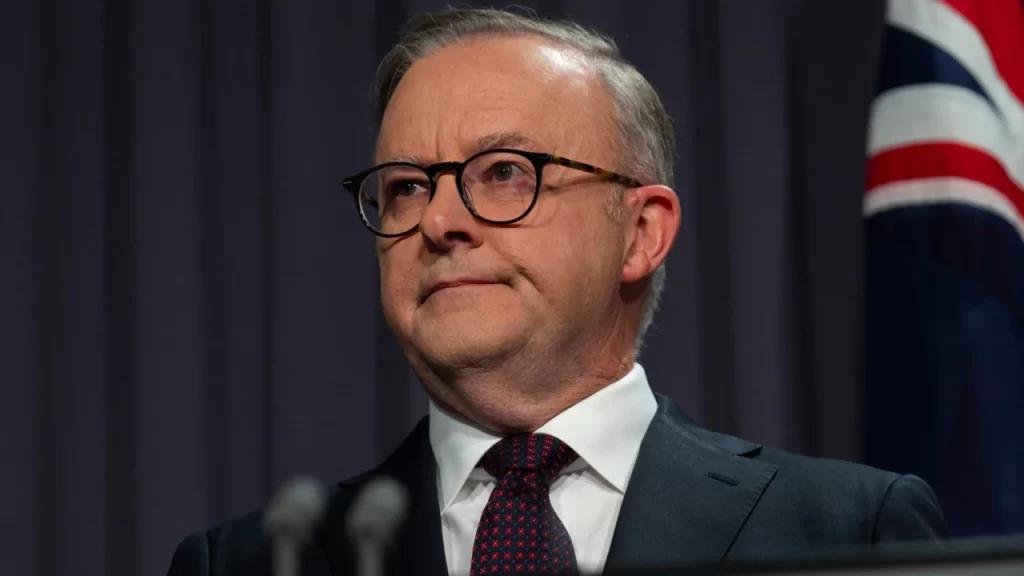
Michael Shoebridge is the Director of ASPI’s Defence: Image Reuters
The embassy declined to respond. Canberra did not immediately respond to a request for comment. According to Michael Shoebridge of Strategic Analysis Australia, Trump’s “America First” approach might potentially jeopardize the pact.
“All the levers are there for Trump to say, ‘the U.S. Navy doesn’t have enough, so Australia don’t get any’,” the defense analyst said. Lobbying is a low-key option for US allies to influence Trump, especially if they wish to remain covert.
A former South Korean government official currently working in Washington said the Biden administration was keenly monitoring foreign governments and that Seoul preferred to learn Trump’s thoughts in a “stealthy manner” through lobbying firms.
South Koreans are flocking to Washington’s lobbyist district to learn about Trump’s views on trade and investment, as well as what will happen to Biden’s Inflation Reduction Act (IRA), according to a South Korean official.
The IRA encourages manufacturing reshoring and energy transformation. Trump also supports reshoring, but not Biden’s desire to transition from fossil fuels to renewable energy.
Some US allies use Trump-linked lobbyists, such as Ballard Partners, which is led by Brian Ballard, a Florida lobbyist known for his strong ties to Trump.
Ballard’s clients include Japan and the Democratic Republic of Congo, according to the firm’s and the United States’ disclosure reports. It declined to name others.
“Many members of our firm have been longtime allies of the former president,” said Justin Sayfie, a partner at Ballard.
Japan’s foreign ministry stated that it sought advice and support from a diverse group of specialists. It declined to comment on its relationship with Ballard.
Politics
Trudeau Liberals Electoral Chances are as Good as Dead
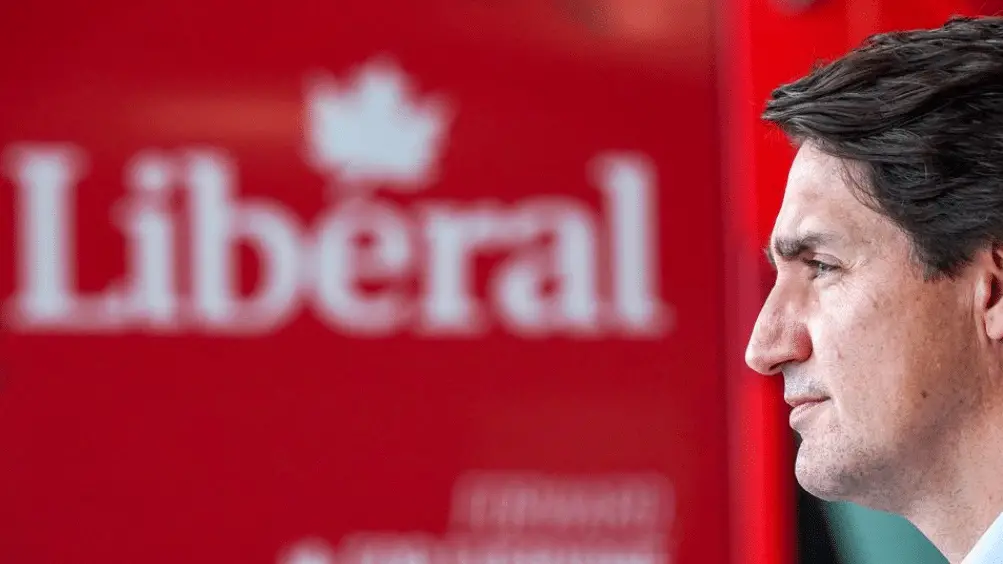
Justin Trudeau’s Liberal Party’s popularity has plummeted to record lows in recent polls. Scandals and his carbon tax weakened Trudeau’s support after years of support. Many election Analysts belive Justin Trudeau and his Liberals will not survive the next election.
The newest Angus Reid survey shows the Conservatives leading nationwide, with Trudeau and his Liberals losing support in most provinces, especially Ontario and Quebec. Analysts say Trudeau’s leadership fatigue, unhappiness over inflation, ridiculous carbon tax, and continual policy flip-flopping are driving voters away.
Trudeau’s carbon tax is unpopular across Canada. Many Canadians hate its higher prices for homes and businesses.
Critics say it unfairly targets energy, threatening jobs and prosperity. Skeptics believe the tax fails to solve global climate challenges despite claims it will reduce emissions.
Provincial governments like Alberta passionately oppose federal intrusion. The carbon tax still divides society.
Steven Guilbeault, Trudeau’s Environment and Climate Change Minister, has lost support from neutral public and provincial governments and the powerful climate action lobby.
Don Braid of the Calgary Herald says Chickens with their heads cut off run around in circles. In politics, the federal Liberals are starting to exhibit this postmortem behaviour.
Environment and Climate Change Minister Steven Guilbeault, the core cabinet fowl who said no new roads should be built in Canada, continues to press his climate extremism.
“The result is political fiasco.”
Alberta and Saskatchewan have always been bitterly opposed to many measures. But Guilbeault is now losing support from the public, provincial governments that once were at least neutral and, crucially, the powerful climate action lobby.
The disasters are self-inflicted. Trudeau and Guilbeault stuck to the carbon tax even after the policy’s disastrous deflation by the “carve out” for home heating oil, a benefit mainly to Atlantic Canada.
Their faux-tough response — nobody else gets that, dammit! — actually cost farmers a break that had been planned, but suddenly looked like another exemption.
The carbon tax, revealed as a purely political tool, is ripe for axing by a potential new leader like Mark Carney. Even New Democrats have argued that the tax should exit, stage left.
Now, Guilbeault has introduced amendments to the Impact Assessment Act, allegedly bringing it into line with the Supreme Court ruling that found the law seriously intrudes on powers rightly belonging to the provinces.
Trudeau’s power grabs shot down
Guilbeault has never acknowledged this was a defeat. He treats the ruling as a simple policy problem rather than a 5-2 thumping by judges not usually known for hostility to federal power grabs.
Alberta was predictably furious about the amendments. Premier Danielle Smith always said Guilbeault would make a gesture and proceed as usual, forcing yet another court challenge.
“When you look at the unconstitutionality of the first draft, you can’t just make tweaks and bring this in line with the Constitution,” says Rebecca Schulz, Alberta’s minister for environment and protected areas.
“That’s really the issue here. Minister Guilbeault still has the ability to involve himself in projects that are within provincial jurisdiction.
“In the end, this piece of legislation remains unconstitutional. We are going to be taking this back to court and I’m confident in our position, because their changes don’t actually address the issues that we’ve raised.”
Trudeau’s middle ground game not working
The Impact Assessment Agency, the powerful regulatory body that oversees all this, said in a statement: “No decisions to designate projects will be taken. Consideration of any new designation requests will only resume, as appropriate, once amended legislation is in force.”
Most striking is the fury from the climate action lobby toward Guilbeault’s amendments.
“Overall, the bill is a complete federal abdication to address proposed high-carbon projects such as in situ oil mines,” Steven Hazell, a retired environment lawyer and federal regulator told the National Observer, Canada’s best chronicler of climate stories and policy.
Green party Leader Elizabeth May said the government was “erring on the side of stupidity.” May sees the court decision as an opportunity to go further with legislation, not retreat to meet demands of provincial jurisdiction.
Election News
South Africa Braces for a Milestone 2024 Election
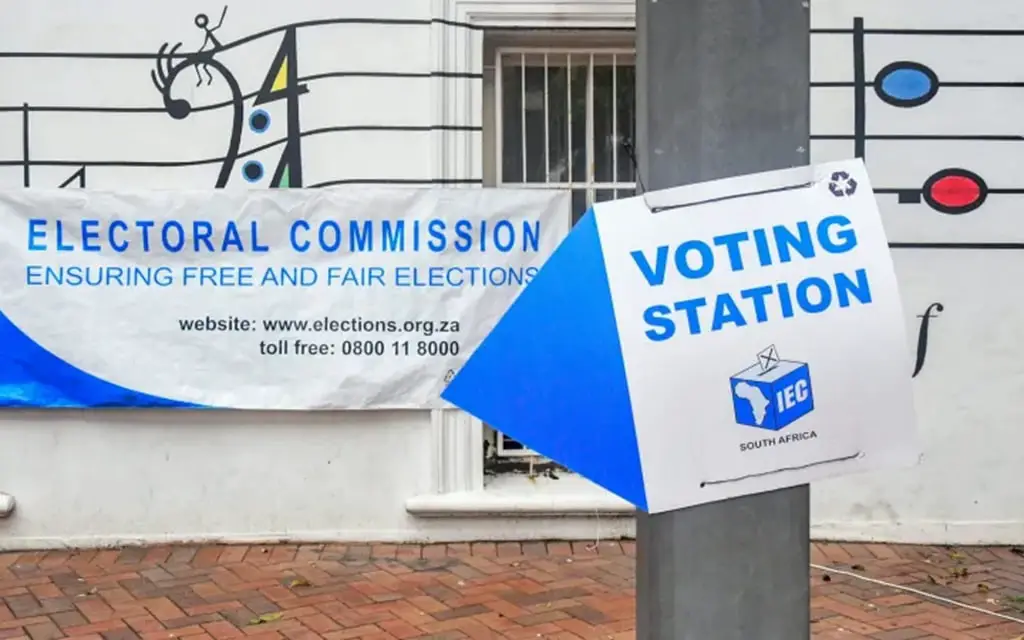
After 30 years of dominating South Africa politics, the ruling African National Congress will confront its most difficult election this month, with most opinion surveys predicting it will lose its parliamentary majority for the first time.
The ANC’s reputation, once admired under Nelson Mandela’s leadership and regarded as a beacon of hope by the Black majority following the fall of apartheid in 1994, has been tarnished by record levels of unemployment, widespread poverty, the collapse of some government services, and more than a decade of corruption scandals, leaving voters disillusioned.
President Cyril Ramaphosa is hoping for re-election on May 29. However, if the ANC loses its majority, it would be forced to form a government in a coalition, which would be a first for the country and might complicate governing in Africa’s most sophisticated economy.
South Africans do not directly elect their president, but rather vote for parties that are allotted seats in Parliament based on their share of the ballot. Following that, lawmakers select the head of state.
Ramaphosa was a major member in the ANC in the early 1990s, and he was once considered Mandela’s apprentice. He left politics to become a successful businessman before returning to serve as South Africa’s deputy president in 2014. He became president in 2018 when Jacob Zuma resigned amid corruption charges.
Ramaphosa has tried to repair the ANC’s credibility by cracking down on government corruption. However, during his president, unemployment has climbed to 32%, the highest in the world, and he has struggled to reduce poverty.
Electricity Crisis in South Africa
An electricity crisis has caused 62 million power outages across the country as a result of problems at the state-run electricity supplier. It had a negative impact on the economy and Ramaphosa’s reputation as someone who could solve South Africa’s problems, even though the blackouts were caused by mismanagement during the Zuma administration.
The ANC is still projected to win the most votes, but if it obtains less than 50%, it will require coalition partners to reelect Ramaphosa, who is 71 years old.
John Steenhuisen leads the Democratic Alliance, the largest opposition party. The centrist DA has claimed to “rescue” South Africa from the ANC’s corruption and ineptitude, but has yet to win a national election. The DA received 22% of the vote in the last national election in 2019, while the ANC won 62%.
The DA reached a pre-election deal with smaller opposition parties, thinking that their combined vote would secure a majority and depose the ANC. However, they would all need to dramatically expand their share, which is considered implausible.
Economic Freedom Fighters
Steenhuisen, 48, is the sole white leader among South Africa’s major political parties. In a society where race remains at the forefront of national awareness, critics argue that the DA serves the interests of the white minority more than the 80% of South Africans who are Black.
Since its founding in 2013 by Julius Malema, a former ANC youth leader ousted from the ruling party, the Economic Freedom Fighters have risen quickly to become South Africa’s third largest party in Parliament.
His fiery, far-left language has made the 43-year-old South African politician the most divisive, but his argument that the ANC has failed poor, Black South Africans has found momentum, particularly among unemployed and disenfranchised youth.
The EFF has advocated for mine nationalization and land transfer to poor Blacks. The party, which adheres to Marxist doctrine, claims that economic disparity based on race persists decades after apartheid, with whites generally wealthy and Blacks impoverished.
Security concerns for the 2024 election
Malema and other EFF MPs have frequently interrupted opponents’ speeches in Parliament and gotten into scuffles with security personnel, bringing a militant brand of politics to the heart of South Africa’s democracy. The EFF is a potential coalition partner for the ANC, while neither party has stated whether there is an agreement.
Former President Zuma added a fresh dimension when he declared in December that he would leave the ANC he once commanded and return to politics with a new party.
Zuma’s MK Party is unlikely to threaten the top three, but it is expected to severely diminish the ANC vote just as the ruling party confronts its most difficult electoral test. The 81-year-old former leader continues to command support, particularly in his home region of KwaZulu-Natal.
His reemergence has also raised security concerns for the election, as his conviction for contempt of court and subsequent prison sentence in 2021 sparked a week of rioting and looting that resulted in the deaths of over 350 people in South Africa’s worst violence since apartheid’s final days.
Zuma is battling in court over whether his criminal history bans him from running for Parliament. There is concern about unrest if he gets disqualified. Even if he isn’t, his new reputation as an agitator is sure to exacerbate tensions ahead of a key election.
Source: AP
People Also Reading:
Election Violence Increasing in Mexico, 30 Candidates Already Killed
Election Violence Increasing in Mexico, 30 Candidates Already Killed
Election News
Biden Blasted for CNN Interview Saying “Americans Have the Money to Spend”
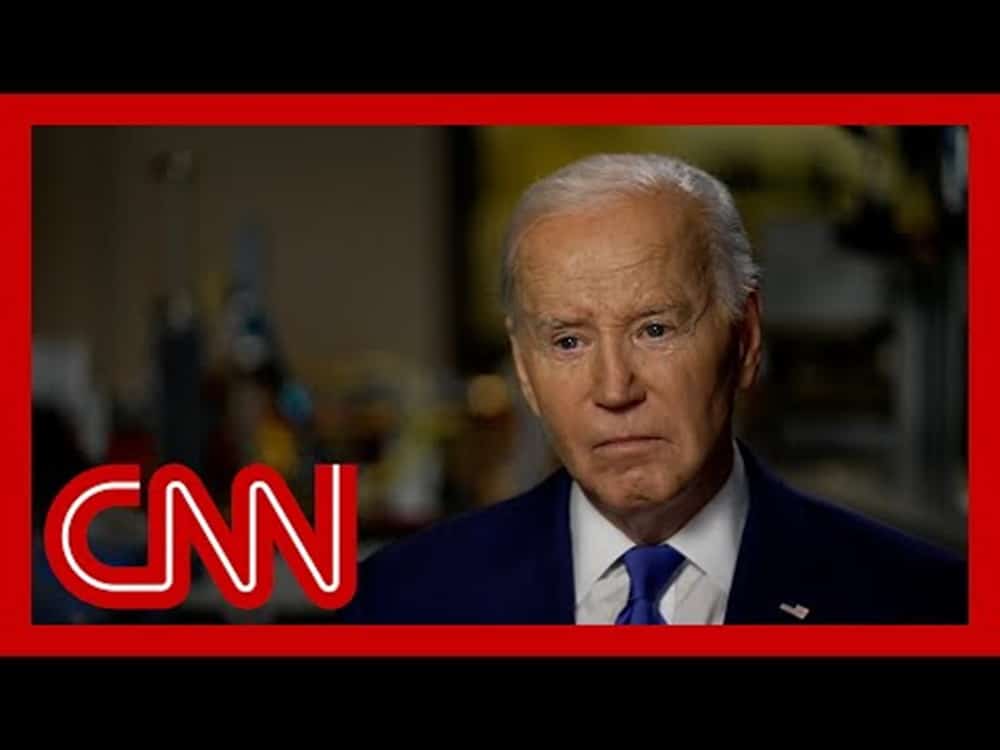
In a rare appearance with CNN, President Biden refused to acknowledge that Americans’ troubles with inflation saying Americans have more money in their pockets thanks to my policies. “They have the money to spend” he told CNN.
According to polls, voters are concerned about Biden’s economic policies. He did admit that inflation, one of the major problems that harmed Biden’s popularity during the first half of his administration, was real.
‘It is true, but the fact is that if you look at what people have, they have enough money to spend,’ he asserted. He blamed the lack of consumer confidence on ‘greedy companies’.
‘It irritates them, as much as me, that you must spend more. For example, consider the whole concept of shrinkflation. It’s around 20% less for the same price; this is corporate greed. It is corporate greed, and we must deal with it.’
Biden’s words sparked outrage on social media, despite the fact that many Americans are still struggling.
One critic remarked on X: ‘Most people don’t have the money because they are honest, unlike pathological liar Joe!’
Another on X stated; ‘He is the most stupid president our country has ever had, and that is how history will remember him.’
‘The man is out of touch with everything,’ said another.
He admitted that inflation was an issue, but opted to blame ‘greedy businesses’ for the public’s lack of trust in the economy.
Biden’s approval Rating Plummeting
In a recent CNN poll, Biden’s approval ratings for the economy (34%) and inflation (29%) were both poor. When it comes to electing a president, voters are most concerned about the economy.
‘The polling data has been inaccurate all along,’ Biden said of the figures, disputing the effectiveness of phone polls.
‘We’ve already turned it around,’ Biden said when asked if he was running out of time to change voters’ perceptions of him with less than six months until Election Day.
‘I guess I’m pleased with the campaign’s progress. And, from what I’ve seen, most people don’t truly focus and make up their minds until the fall. There’s a lot going on,’ he added.
In an interview with CNN done in the battleground state of Wisconsin, Biden stated why he believes the polls are wrong and warned Israel that if it invades Rafah, he will withhold US arms.
Robert Kennedy Jr a Wildcard
Biden’s re-election campaign has highlighted its large fundraising efforts and on-the-ground presence in battleground states. They also point out that Trump is required to appear in New York for the trial.
Meanwhile, Biden is dealing with an uncertain Middle East and progressives who are dissatisfied with his unwavering support for Israel and the treatment of Palestinian refugees.
Then there’s Robert Kennedy Jr.’s independent presidential campaign. Both Trump and Biden’s campaigns are concerned that Kennedy will play a spoiler role, diverting votes away from them.
Trump has stepped up his criticism on RFK Jr., and Biden has announced a dozen Kennedy family endorsements to offset RFK Jr.’s use of the clan’s political legacy.
Biden’s health remains a concern. The president will turn 82 just weeks after Election Day, November 5, and is already the oldest president in American history; Trump is 77.
His approval rating remains at a low 38 percent, according to Gallup polls.
-
Sports5 months ago
Saints’ Aggressive Play-Calling Ends Up Coming Back To Hurt Them In Loss To Rams
-
Business5 months ago
Nike Says It Will Cut $2 Billion In Costs In A Major Warning For Consumers
-
Business5 months ago
Federal Court Revives Lawsuit Against Nirvana Over 1991 ‘Nevermind’ Naked Baby Album Cover
-
News5 months ago
The Rise of Woke Ideology in Western Culture
-
Business5 months ago
Wayfair CEO: Employees Need To Work Longer Hours, After Laying Off 5% Off The Company
-
Learning3 days ago
Exploring TVA Nouvelles Quebec’s Premier News Source








































